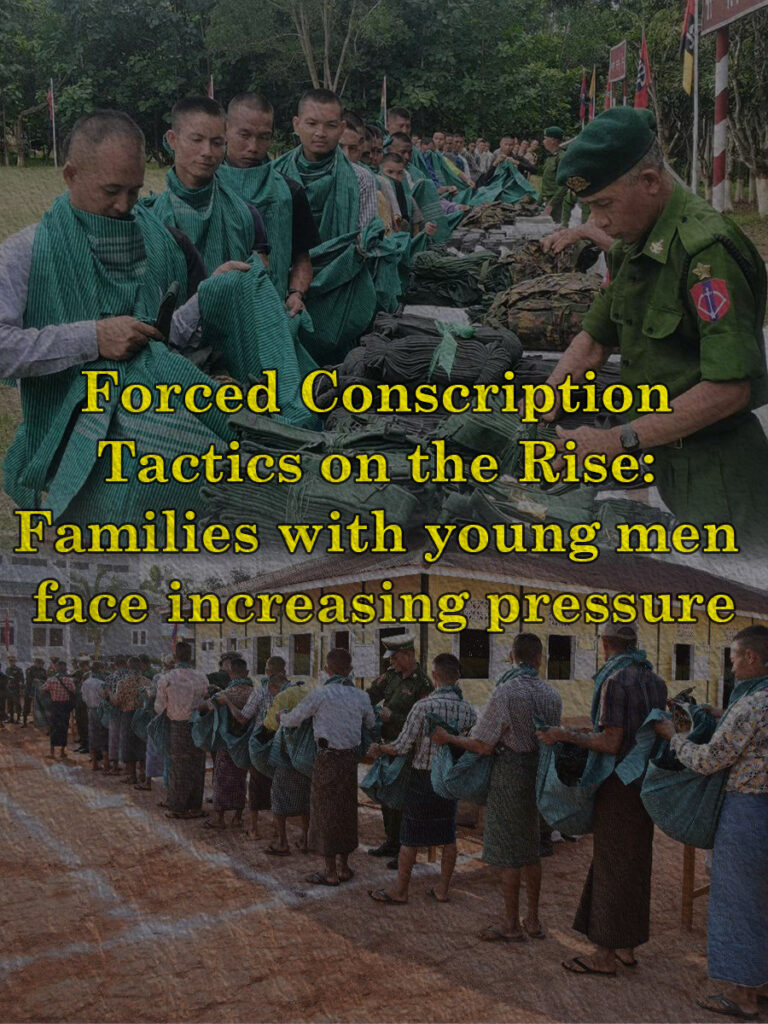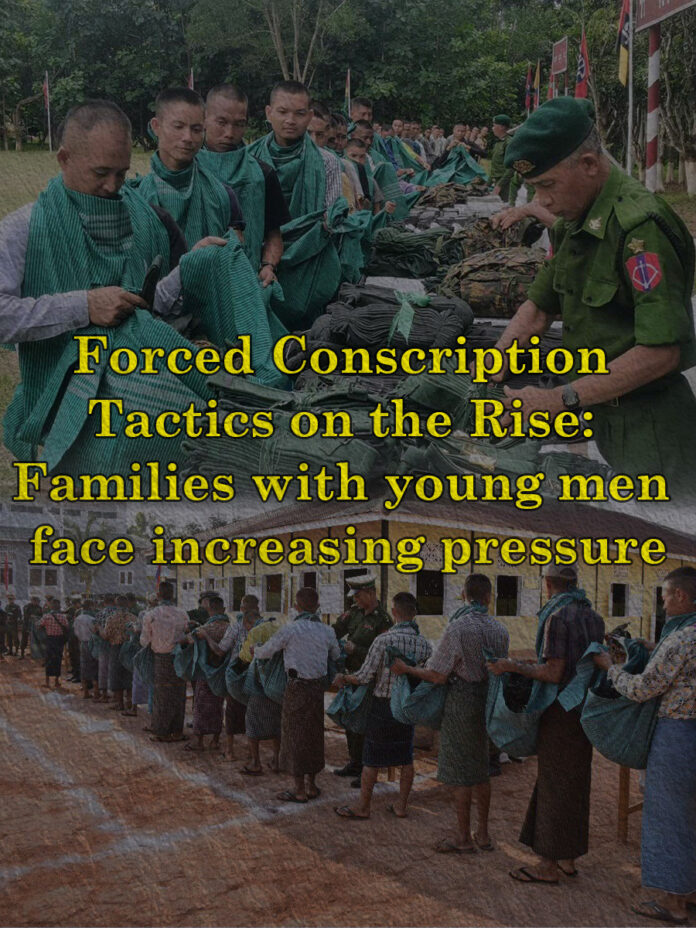The military council is expanding its forced recruitment campaign from rural villages into urban neighborhoods. Residents in the Tanintharyi Region are amongst those experiencing intensifying conscription efforts.
According to compiled records, nearly 100 civilians across most townships in the Tanintharyi Region were detained between mid-July and the second week of September.
This information is based on reports from local media, human rights groups, residents, and contacts with resistance organizations.
Although women, the elderly, and those in poor health were released, around 50 civilians have been forced into military conscription.

“It’s no longer just in the villages like before. Now, it’s openly happening in town neighborhoods. The soldiers arrest whoever they want,” said a 45-year-old woman from Myeik.
Most detainees came from Myeik, Dawei, Yebyu, Tanintharyi, and Palaw, according to collected data.
Residents said most arrests occur during guest list checks, phone inspections while traveling, entry and exit checkpoints, or home searches. Young men are also detained during military patrols under various pretexts.
“They even storm funeral houses. Recently, in Myeik, they came in without any reason. Even those just going out to buy betel were arrested. If they find anything on your phone related to the revolution, they threaten and take you away,” the same Myeik resident said.
Previously, the junta issued official call-up letters for military training. But now, arrests have sharply increased without such notices, she added.
In Tanintharyi, the “price” to avoid conscription ranges from 1 to 5 million kyat per person, but negotiations have become increasingly difficult.
“For example, in Ayeyarwady Region, families pay about 100,000 kyat monthly to avoid being drafted. Here, that no longer works because there are no replacements left. The military only wants bodies. Some families still manage through under-the-table payments, but it’s harder now,” said a spokesperson for the Democracy Movement Strike Committee of Dawei District (DDMSC).
In some cases, if a listed person is absent from home, remaining family members must pay tens of thousands of kyat monthly to avoid further action.
Well-connected families, government staff households, and those close to the junta often escape conscription, the spokesperson added.
“Before, we worried about being seized while outside. Now, even staying home isn’t safe. If you live in their controlled areas, you’re worried all the time,” the DDMSC spokesperson said.
Fear is mounting among townspeople as arrests spread into urban neighborhoods. To protect their sons, families are encouraging their young men to flee either to resistance-controlled territories or across international borders.
According to a resistance commander in Dawei District, only a minority want to join the revolution; most prefer to cross into neighboring countries for work.
“They come to us for shelter temporarily, but then they just want to get out to the border,” he said.
He warned that forcing unwilling youth into resistance ranks would be ineffective and misguided.
Meanwhile, wealthier families trying to send their children abroad face growing restrictions from the junta, while poorer households rely on illegal routes into Thailand.
However, if caught by Thai authorities and deported back, they risk being handed over to the military for conscription.
Those forcibly drafted are sent to the No. 12 Advanced Military Training School in Palaw Township.
Although junta spokesman Major General Zaw Min Tun has claimed trainees will only serve in their local areas, in reality, conscripts from Tanintharyi are being deployed to frontlines in Rakhine, Karen, and Mon States. Families are often only informed after their sons have been killed in battle.
“One of my sons can’t even go to school freely anymore. They arrest people at random. Now we have to escort him back and forth every day,” said the mother of a teenager in Myeik.
This situation has become a source of constant fear and heartbreak for mothers across the Tanintharyi Region.

